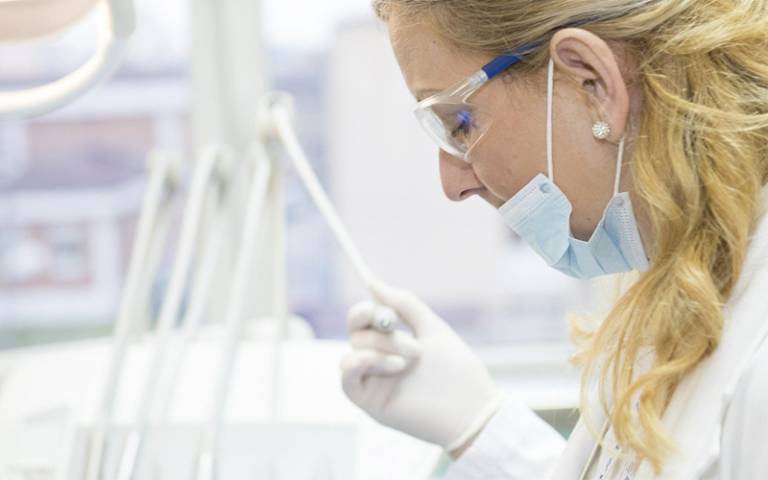Clinical research reduced by 87 per cent at peak of pandemic
24 August 2020
At the peak of the COVID-19 pandemic, clinical research capacity may have been reduced by up to 87% in England, finds a new study led by UCL academics.

In the study, published in PLOS One, researchers estimated that at a population infection rate of 10% - at the peak in April, for over a month - less than 400 of the 3,200 (13%) full-time clinical academics in England would be available to do research.
Lead author, Dr Amitava Banerjee (UCL Institute of Health Informatics), said: “The urgent need for clinicians to be on the frontline at the height of the COVID-19 pandemic is likely to have resulted in major shortages of clinical academics (doctors with combined roles in medical care and research).
“A major part of the global response to COVID-19 continues to be the research response, whether clinical trials of new treatments and vaccines, or epidemiologic studies of at-risk populations in intensive care units. Clinical academics are vital to this research effort and “translating” discoveries to patient care.”
The team of researchers from UCL, University College London Hospitals, Health Data Research UK (HDR UK), Ospedale Papa Giovanni XXIII Hospital (Bergamo, Italy) and Minneapolis Heart Institute (USA), based their projections on the infection rate in England’s population, strain on the healthcare system, and availability of clinical academic staff after accounting for frontline clinical activity and sickness.
Dr Banerjee said: “We know that a high coronavirus infection rate is bad for public health and the economy. Using data modelling in a number of different scenarios, our findings show that COVID-19 can also have a profound effect on the ability of clinical academics to mount a research response to the pandemic.”
At 10% infection rate, the researchers modelled that it would have taken until early July to recover to 80% of usual clinical academic capacity, and potentially until October or November if the population infection rate was allowed to rise to 40%. At high infection rates, there may be periods where no clinical academics are available to conduct research.
Commenting Dr Banerjee added: “Even though it seems that there is a lot of COVID-19 research happening in the UK and worldwide, academic capacity has been affected and needs to be planned and preserved, not just for COVID-19 studies, but also work relating to non-COVID-19 diseases. This is highly relevant to ongoing efforts to keep infection rates down and potential second waves of infection.”
Senior author, Professor James Moon (UCL Institute of Cardiovascular Sciences) concluded: “In times of emergency, our research needs to be prioritised, rationalised and collaborative across institutions and countries to ensure we make best use of the resources we have, including clinical academics.”
Links
- Dr Amitava Banerjee’s academic profile
- Professor James Moon’s academic profile
- UCL Institute of Health Informatics
- UCL Institute of Cardiovascular Sciences
- UCL Faculty of Population Health Sciences
- Academic research paper
Image
- ‘Doctor medical medicine health’ Credit: Darko Stojanovic from Pixabay, CC by 2.0
Media Contact
Henry Killworth
T: +44 (0) 7881 833274
 Close
Close

